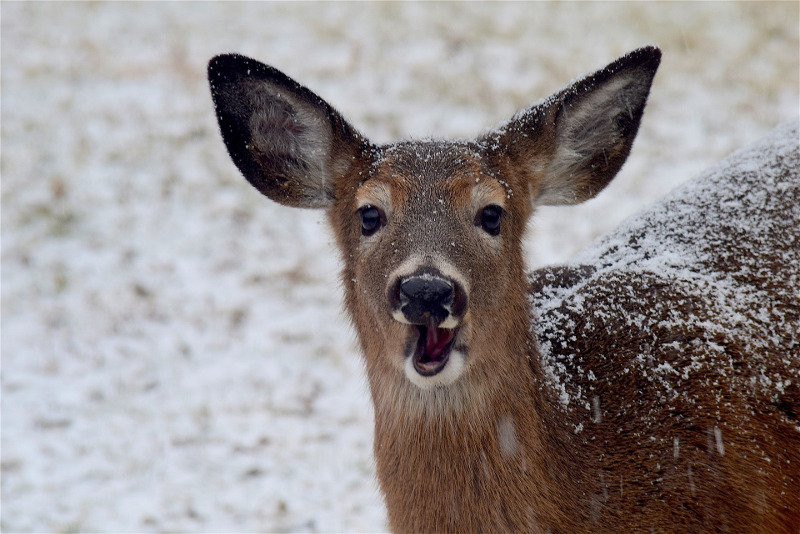A common question we get asked is if hydrangeas are deer resistant. Unfortunately, the answer is no; hydrangeas are prone to deer damage and may need protection in wooded or rural areas. According to Rutgers University, most hydrangeas are “occasionally severely damaged”, meaning deer may prefer other plants, but a hungry deer will eat hydrangeas. They recommend using repellents or extra protection, especially during winter months.
| Rarely Damaged |
| Seldom Severely Damaged |
| Occasionally Severely Damaged |
| Frequently Severely Damaged |

Several environmental factors will determine if you need to worry about deer munching on your plants. Growing deer populations and expanding cities put extra pressure on deer to find food. This is heightened during the winter months when food is harder to find. In winter, the exposed stems of hydrangea attract deer the most. Hydrangeas that bloom on old wood are especially susceptible to deer damage, as it could ruin the following year’s blooms.
There are some species of hydrangea that are more deer resistant than others. Bracted and Climbing hydrangeas are the least susceptible to damage. We recommend planting these varieties if you live in an area with a dense deer population. By contrast, Smooth, Bigleaf, Oakleaf, and Panicle hydrangeas are all susceptible to deer browsing and may not flower after damage. The flowers are the most appealing part of the plant, followed by the fresh new shoots in the spring.
Keeping Deer Away From Hydrangeas
In winter months, you can cover hydrangeas with burlap or frost covers to prevent deer from munching on the branches. This should also help provide extra winter protection to the plants. For hydrangea trees, be sure to cover the "trunk" of the plant, because deer like to munch on the bark.
You can also buy deer repellent spray to apply on the leaves and branches of hydrangeas. Typically you need to spray every week for the first month to train the deer to stay away. After that, the frequency can be reduced to every 2-3 weeks for maintenance. This is the easiest way to prevent deer from eating your hydrangeas.

Will Hydrangeas Come Back After Deer Eat Them?
Hydrangeas are resilient shrubs and grow quickly during the growing season. If deer eat the flowers, the plant will be fine and should bloom normally the following year. If deer eat the branches of a Bigleaf, Mountain, Oakleaf, or Climbing hydrangea, blooming may be reduced that year because these hydrangeas bloom on old wood. Young hydrangeas are particularly vulnerable to damage and should be protected with netting, cages, or repellents if deer are a problem in your area. Once the shrub matures, less protection is necessary and any damage is unlikely to harm the health of the plant.
In general, hydrangeas are susceptible to deer damage. Taking additional measures to prevent deer from eating your beautiful shrubs doesn’t require a lot of work, and shouldn’t prevent you from trying to grow hydrangeas in your garden.
Sources: Rutgers New Jersey Agricultural Experiment Station ‘Landscape Plants Rated by Deer Resistance’ 2018
 |
Author Judith King - Published 10-17-2017 |


